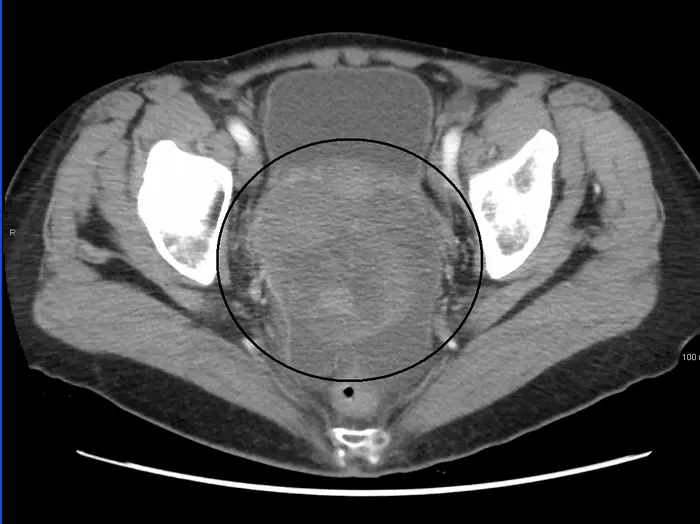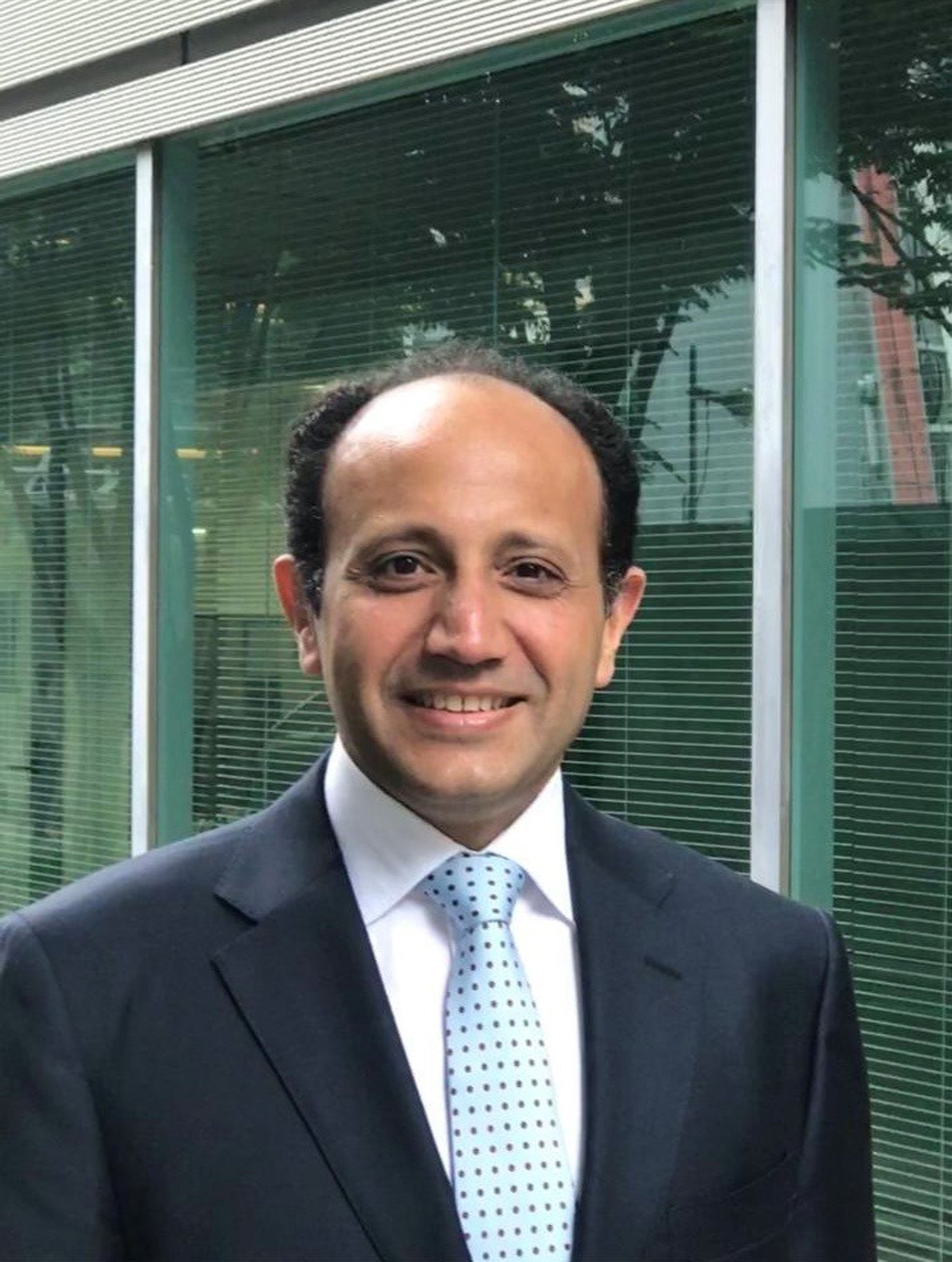Ovarian cancer vaccine: What you need to know about breakthrough jab that could wipe out disease
There are around 7,500 new ovarian cancer cases in the UK every year

The world’s first vaccine for ovarian cancer has given hope to thousands.
The joab is being developed in the UK and could wipe out the deadly disease, researchers say.
Scientists at the University of Oxford are creating OvarianVax, a vaccine which teaches the immune system to recognise and attack the earliest stages of ovarian cancer.
The hope is that the jab could be given to women preventatively on the NHS with the aim of eliminating the disease.
Experts suggest it could work in a similar way to the human papillomavirus (HPV) jab, which is on track to stamp out cervical cancer.
For the new work, Professor Ahmed Ahmed, director of the ovarian cancer cell laboratory at MRC Weatherall Institute of Molecular Medicine the University of Oxford, and his team are identifying cellular targets for the vaccine.
They will establish which proteins on the surface of early-stage ovarian cancer cells are most strongly recognised by the immune system, and how effectively the vaccine kills mini-models of ovarian cancer in the lab.
They will then move on to human clinical trials in people with BRCA gene mutations – which massively increase the risk of ovarian cancer – and healthy women in the general population to see if the disease could be prevented.
First vaccine for ovarian cancer – what we know so far
What you need to know
What is ovarian cancer?
Ovarian cancer affects the ovaries – two small oval-shaped organs that are part of the female reproductive system.
Cancer can occur in the ovaries when abnormal cells begin to grow and divide in an uncontrolled way which eventually form a tumour.
If not caught early, the cancerous cells can grow into the surrounding tissues and may spread to other parts of the body.
– How many women are affected by ovarian cancer in the UK?
There are around 7,500 new ovarian cancer cases in the UK every year.
Just over a third of women (35%) with ovarian cancer will survive for 10 years after diagnosis.
Around 4,100 women die from the disease each year in the UK.
– What are the standard treatments?
Treatment for ovarian cancer depends on a number of factors, including the size and type of ovarian cancer, where it is and whether it has spread.
The main treatments are surgery and chemotherapy, other treatments include targeted medicines and hormone treatments.
Scientists at the University of Oxford are creating OvarianVax.
It is hoped the jab will work by teaching the immune system to recognise and attack the earliest stages of ovarian cancer.
Experts envisage that this cancer vaccine will work in a preventative way by stopping the very first few cancer cells that develop.
– When will it be ready?
It will still take many years for the vaccine to reach a point where it is widely available.
At the moment, scientists are identifying cellular targets for the vaccine.
They will establish which proteins on the surface of early-stage ovarian cancer cells are most strongly recognised by the immune system, and how effectively the vaccine kills mini-models of ovarian cancer in the lab.
If this research is successful, work will then begin on clinical trials of the vaccine.
Once the various stages of human clinical trials have been completed, health officials can then consider whether it is safe and effective for widespread use.
– What have experts said?
Experts from Cancer Research UK, which is funding the study, have described the work as an “exciting step forwards”.
Professor Ahmed Ahmed, director of the ovarian cancer cell laboratory at MRC Weatherall Institute of Molecular Medicine the University of Oxford, said the aim of the jab is to eliminate ovarian cancer.
“I am optimistic because we are talking about preventing the very first few cancer cells that develop – and not trying to cure or treat or prevent the tumour coming back,” he said.
– What other cancer vaccines are around?
Vaccines are a relatively new development in the arsenal to fight cancer. A number of vaccines are being trialled to see if they are effective in the fight against a number of cancers including melanoma, pancreatic and lung cancer, among others.
Cancer Research UK is funding the study with up to £600,000 over the next three years.
Prof Ahmed said that, if the jab is successful, he would expect to start seeing an impact within the next five years.
Asked if ovarian cancer could be wiped out with the new vaccine, he said: “Absolutely – that would be the aim. We still have a long way to go but it is a really exciting time. I’m very optimistic myself.”
For the work, scientists will create the vaccine in the lab, with the aim of training the immune system to recognise more than 100 proteins on the surface of ovarian cancer, known as tumour-associated antigens.
They will then move to testing the vaccine in patients with the disease.
Prof Ahmed said: “The idea is, if you give the vaccine, these tiny tumours will hopefully either reduce, shrink really significantly, or disappear. That would give us the sign that the vaccine is working.”

The next stage would then be to include women with BRCA mutations and a wider general population of women without known disease to see whether “the vaccine would be suitable for all” in preventing ovarian cancer.
Prof Ahmed said: “Let’s imagine that it all goes well, and the vaccine really works well.
“Now, the obvious population who would benefit from this are the BRCA1 and BRCA2 mutation carriers, because they have a very high chance of getting ovarian cancer.
“If you give it to those patients and it’s effective, then you get the best health economics and the best cost-effectiveness.
“The question then becomes – would it really benefit the general population? … Could you offer it to everyone?”
At the moment, there is no screening test for ovarian cancer, which is often diagnosed in late stages because the symptoms – such as bloating and no appetite – can be vague.
However, it is known that women with BRCA mutations, such as actress Angelina Jolie, are at high risk.
Almost 45% of people with an altered BRCA1 gene and almost 20% with an altered BRCA2 gene will develop ovarian cancer by the age of 80, compared with just 2% in the general population.
Currently, women with BRCA1/2 alterations are recommended to have their ovaries removed by the age of 35, which means they go through early menopause and cannot have children in the future.
Prof Ahmed said BRCA mutation carriers could benefit greatly from the new vaccine because “they wouldn’t then have to have their ovaries removed”.
However, he said his team will be trying to get the best components included in the vaccine so it “would be effective for as many people as possible”, including the wider population.
He added: “I am optimistic because we are talking about preventing the very first few cancer cells that develop – and not trying to cure or treat or prevent the tumour coming back.
“I’m hoping that, because the number of cells that we will be targeting is quite small, we will have success.
“We’ve seen success with the HPV vaccine – it’s really, really incredibly effective.”
Prof Ahmed told PA that “while the full blown timeline” for a vaccine being approved “might be many years away”, the “impact that it would have, if it’s successful, would hopefully be much sooner”.
He said that, through the clinical trials, he would hope to start seeing the impact of the vaccine “in four or five years on the healthy population”.
There are around 7,500 new ovarian cancer cases every year in the UK, with BRCA mutations accounting for around 5%-15% of these cases.
Michelle Mitchell, chief executive of Cancer Research UK, said: “Projects like OvarianVax are a really important step forward into an exciting future, where cancer is much more preventable.
“This funding will power crucial discoveries in the lab which will realise our ambitions to improve ovarian cancer survival.
“OvarianVax builds on the exciting developments in vaccine technology during the pandemic.
“This is one of many projects which we hope will give women longer, better lives, free from the fear of cancer.”
Join our commenting forum
Join thought-provoking conversations, follow other Independent readers and see their replies
Comments
Bookmark popover
Removed from bookmarks